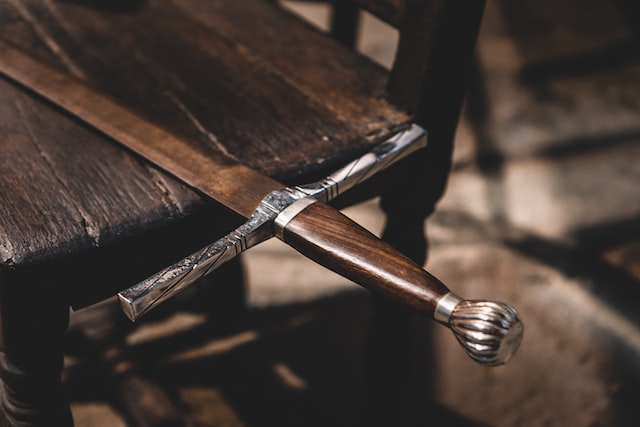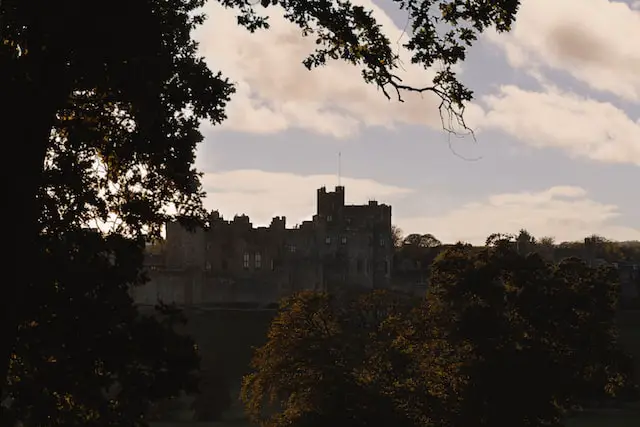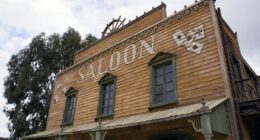The Anglo-Saxon and Norman periods shaped much of the English language as we know it today. While both groups had a major impact on England’s culture, history and language, there were several distinct differences between them – from their languages and religions to their lifestyle and military tactics.
The history of the Anglo Saxons and the Normans
The Anglo-Saxons were a group of people who came to England from the island of Britain and the northwestern coast of continental Europe. They settled in England during the fifth and sixth centuries AD. The Normans were a group of people who came to England from the northern region of France in the eleventh century. The Anglo-Saxons and Normans had different cultures, languages, and religions.
The Anglo-Saxons did not have a centralized government as the Normans did. They were divided into small kingdoms called “earldoms.” The largest kingdom was Wessex, which was ruled by King Alfred the Great. The other earldoms were Mercia, East Anglia, Northumbria, and Kent. The Anglo-Saxon period was a time of great creativity in art, literature, and music. Some famous Anglo-Saxon works include the epic poem Beowulf and the illustrated manuscript known as The Lindisfarne Gospels.
The Normans introduced many changes to England after they conquered it in 1066. They brought with them a new religion, Christianity, which became the dominant religion of England. They also introduced a new form of government, Feudalism, which reorganised English society into a hierarchy of lord and serf. The Norman Conquest had a profound impact on the English language: many French words were introduced into English during this period.
The differences between Anglo Saxon and Norman culture
The most significant difference between Anglo Saxon and Norman culture is their respective origins. The Anglo-Saxons were a group of Germanic tribes who migrated to Britain in the 5th century, while the Normans were originally Vikings who settled in Normandy, France in the 9th century.
This distinction is reflected in the different cultures that these two groups developed. The Anglo-Saxons were more focused on farming and trade, while the Normans were more militaristic and expansionist. This difference can also be seen in their art and architecture; Anglo-Saxon art is typically simpler and more functional, while Norman art is grandiose and ornate.
The two cultures also had different views on religion. The Anglo-Saxons were pagans who converted to Christianity after their arrival in Britain, while the Normans were Christians from the outset. This religious divide often led to conflict between the two groups, with the Normans trying to impose their religion on the Anglo-Saxons.
Over time, these differences between Anglo Saxon and Norman culture have diminished, as the two groups have intermarried and assimilated into one another. However, there are still some remnants of these cultural differences that can be seen in Britain today.
The impact of the Norman Conquest on England

The Norman Conquest of England in 1066 had a profound impact on the country and its people. The new rulers, the Normans, introduced many changes that affected every aspect of life, from the way the country was governed to the architecture and art that were produced.
One of the most significant changes brought about by the Norman Conquest was the change in language. The Normans spoke French, while the Anglo-Saxons spoke English. This resulted in a hybrid language known as Anglo-Norman, which was used by the ruling class. Over time, however, Anglo-Norman developed into a distinct dialect known as Middle English.
The change in language also had an effect on literature. Prior to the Norman Conquest, much of England’s literature was written in Old English, a Germanic language that was not understood by the Normans. As a result, few works from this period survive. After the Conquest, however, more and more works were written in French or Latin, languages that were more accessible to the Norman rulers.
The impact of the Norman Conquest on England was far-reaching and long-lasting. The country would never be the same again.
The legacy of Anglo Saxon and Norman culture in England today
The Anglo-Saxon and Norman cultures have left a significant legacy in England today. The Anglo-Saxons were a Germanic people who invaded and settled in England in the 5th and 6th centuries, while the Normans were French settlers who conquered England in the 11th century.
Both cultures had a profound impact on English society, language and culture. The Anglo-Saxons introduced the English language, which is derived from their native tongue, while the Normans introduced the French language, which became the language of the aristocracy.
Anglo-Saxon culture also contributed to English law, government and architecture. The Normans, meanwhile, left their mark on English cuisine, with dishes such as roast beef and Yorkshire pudding being popularised by them.
Today, there are many examples of Anglo-Saxon and Norman culture in England. The words “law”, “ parliament” and “police” are all derived from Anglo-Saxon terms, while Gothic architecture – often associated with castles and cathedrals – originated from Norman builders.
What race is Saxon?
When most people think of the Saxons, they think of them as a Germanic tribe. However, the truth is that the Saxons were actually a diverse group of people who came from many different places. Some of the Saxons came from Germany, but others came from Denmark, Poland, and even England. The word “Saxon” simply means “a person who speaks the Saxon language.” This language was used by the Anglo-Saxons, who were a group of people who settled in England after the Romans left Britain. The Anglo-Saxons were also known as the English.
Who were the Norman’s descended from?
The Normans were descended from the Norsemen, a group of people who came from Scandinavia and settled in northern France in the 9th and 10th centuries. The word “Norman” comes from the Old French word “norman,” meaning “northman.” The Normans were a mix of Scandinavian, Frankish, and Anglo-Saxon heritage.
Frequently asked questions about Saxons and Normans
What language did the Saxons speak?
The Saxons spoke Old English, which is a Germanic language. The Normans spoke French, which is a Romance language.
What language did the Normans speak?
The Normans were a people who came from the region now known as Normandy in France. They spoke a dialect of French called Norman French.
What percentage of English DNA is Saxon?
There is no single answer to the question of what percentage of English DNA is Saxon. This is because the genetic makeup of England has changed over time due to immigration and intermarriage. However, some estimates suggest that around 60% of the English population has Saxon ancestry.
What religion were the Saxons?
The majority of the Saxons converted to Christianity in the 7th century, but there were still some pagans among them. In the 9th and 10th centuries, the Saxons were often at war with the Danes, who were also pagan.
What religion were the Normans?
The Normans were originally pagans, but they converted to Christianity in the 11th century.
Are the royal family Normans?
The royal family is of Norman descent, meaning that they are of French origin. The Normans were originally Vikings who settled in northern France in the 10th century. They later conquered England in 1066 and ruled the country for centuries. Many features of English society today, such as the legal system and the Church, are a result of Norman influence.
Are Normans still in England?
Today, there are still people in England who identify as Normans. However, their numbers are small and they are not as visible as they once were.
Why did the Normans and Saxons fight?
In 1066, the Normans defeated the Anglo Saxons at the Battle of Hastings, and thereafter controlled England. However, tensions between the two groups remained, and occasionally flared up into violence.
Who was the first and last Norman ruler of England?
The first Norman ruler of England was William the Conqueror, who invaded in 1066. The last Norman ruler was Richard III, who died in battle in 1485.








